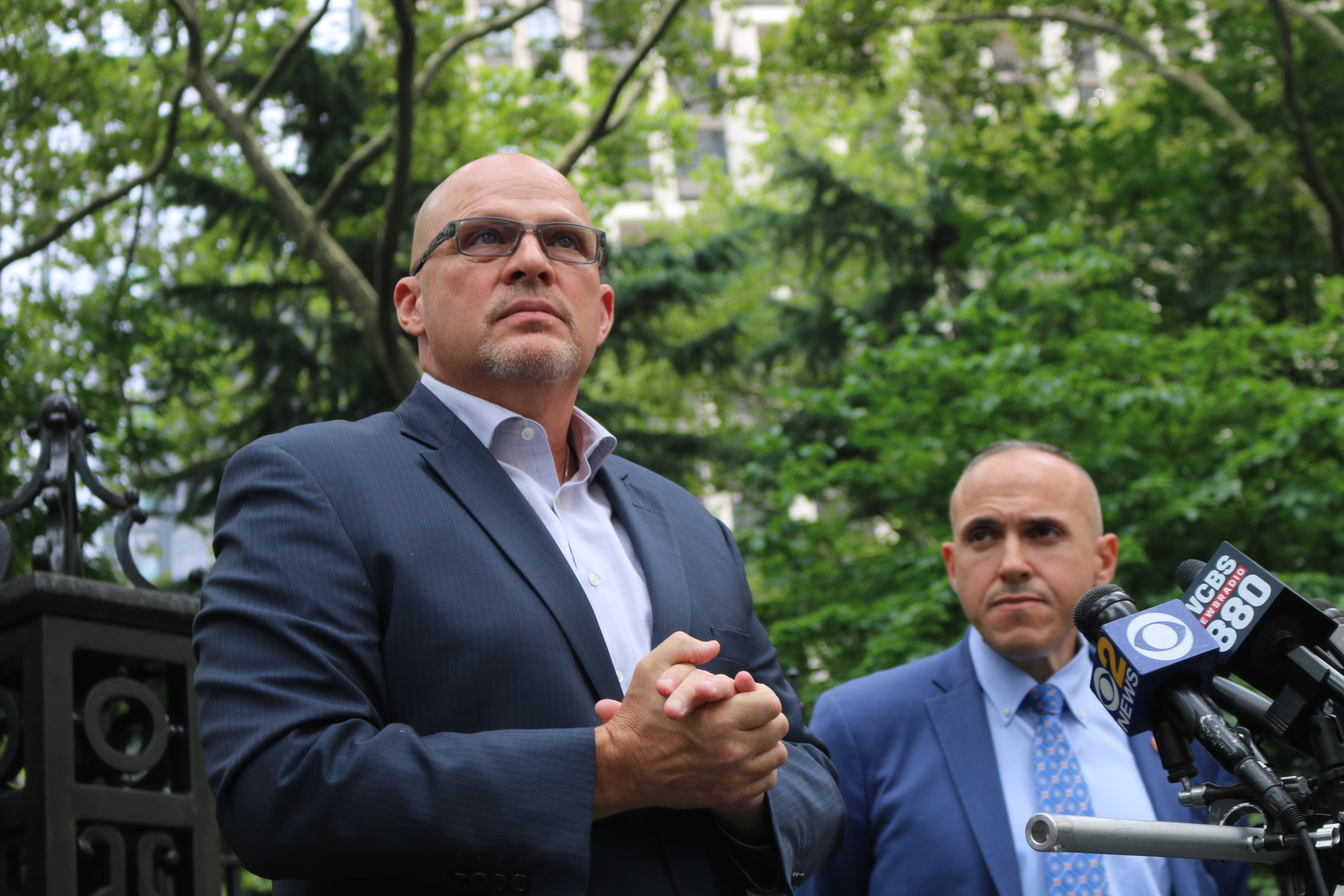United Federation of Teachers President Michael Mulgrew easily secured a fifth term, despite renewed efforts to oust the union’s longtime leadership, UFT officials announced Wednesday.
Mulgrew was elected with 66% of the vote, 20 percentage points less than his vote share in 2019 and his lowest margin of victory since he won his first full term in 2010 with 91% of the vote.
Camille Eterno, his main competitor, earned about 34% of the vote.
“I am honored that — after a couple of very difficult years for the schools and for our members — I have been re-elected,” Mulgrew said in a statement. “I look forward to working with the entire UFT to ensure that the school system functions well for everyone – employees, children and their families.”
Eterno and a slew of other candidates attempted to consolidate factions within the union opposed to Mulgrew’s leadership under the banner United for Change, drawing on internal groups including the Movement of Rank-and-File Educators and Solidarity Caucus that have sometimes run separate slates of candidates for top leadership positions.
A main goal was to create a more democratic union responsive to members’ input, especially as the teachers contract is set to expire this fall. The group also laid out a series of policy positions including opposition to mayoral control of the city’s schools and overhauling the way teachers are evaluated.
But the teachers union has always been dominated by an internal caucus — known as Unity — and even his critics acknowledged that unseating Mulgrew was unlikely. Turnout in UFT elections has typically been low and this cycle was no exception. Of nearly 194,000 mailed ballots, just under 51,000 were returned, about 26%, union officials said.
Mulgrew’s lower margin of victory could reflect some frustration over how the union handled the pandemic. Some members have said they wished the union was more transparent as they negotiated safety rules as schools began reopening in September 2020.
“Behind our backs they negotiated a settlement,” Annie Tan, an elementary special education teacher in Brooklyn who ran for secretary on the United for Change slate, told Chalkbeat before the results came in. Tan said her slate was advocating for “a different vision of how a union runs with member input and mobilization.”
Mulgrew’s lower vote share could also reflect frustration among retired members, a major voting bloc. The teachers union supported a city plan to move retirees from traditional Medicare to Medicare Advantage, a federally funded but privatized program, sparking concern among retirees that their health care could become less accessible.
“It was a disaster the way it was presented,” said Arthur Goldstein, a 66-year-old teacher at Francis Lewis High School who ran for an executive board seat with the Unity caucus. Some retired teachers, for instance, said they only learned of their union’s position in the media. “I absolutely understand that people who have been using government Medicare for years will be insecure about any changes to their plan,” Goldstein added.
UFT officials did not immediately provide full breakdowns of the other races on the ballot, saying the results were not yet official and that about 5% of ballots had not yet been tabulated, which could impact some of the final results. Among the positions up for grabs are a handful of union-wide positions and 90 seats on the UFT executive board.
Alex Zimmerman is a reporter for Chalkbeat New York, covering NYC public schools. Contact Alex at azimmerman@chalkbeat.org.






